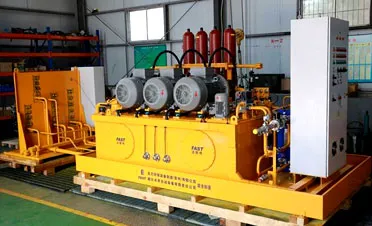Aluminum Die Casting Techniques for Efficient Manufacturing and High-Quality Products
The Advantages and Applications of Aluminum Die Casting
Aluminum die casting is a highly efficient manufacturing process that has gained tremendous popularity in various industries due to its numerous advantages and versatility. This process involves injecting molten aluminum into a mold under high pressure, leading to the production of intricate and precise metal components. Over the years, aluminum die casting has become the preferred choice for many applications, particularly in automotive, aerospace, electronics, and consumer goods sectors.
One of the primary benefits of aluminum die casting is its ability to produce complex shapes with high dimensional accuracy. The precision offered by this method allows manufacturers to create parts that require minimal finishing work, thus reducing time and labor costs. The molds used in die casting can produce multiple components simultaneously, leading to economies of scale and increased production efficiency. As a result, aluminum die casting is ideal for high-volume production runs, making it a cost-effective choice for manufacturers.
Aluminum itself is a lightweight metal, which contributes to the growing preference for aluminum die cast components in various applications. The lightweight nature of aluminum helps improve fuel efficiency in vehicles and reduces energy consumption in electronic devices. In automotive applications, aluminum die cast parts can significantly lower the overall weight of the vehicle, enhancing performance and handling. With the increasing push for sustainability and energy efficiency, the demand for lightweight materials like aluminum continues to rise.
Another essential advantage of aluminum die casting is the superior strength and durability of the final products. Aluminum alloys used in die casting are known for their excellent mechanical properties, enabling the creation of components that can withstand harsh conditions. This resilience makes aluminum die cast parts ideal for use in automotive applications, such as engine blocks and transmission housings, where they are subjected to high temperatures and mechanical stress.
aluminum die casting

In addition to its mechanical advantages, aluminum die casting offers excellent corrosion resistance. This characteristic is particularly valuable in industries where components are exposed to corrosive environments, such as marine or chemical processing. The inherent resistance to rust and oxidation of aluminum helps extend the lifespan of die cast parts, ensuring reliability and reducing maintenance costs over time.
The versatility of aluminum die casting is evident in its wide range of applications. Beyond automotive and aerospace, this process is employed in the production of electronic housings, tool handles, appliances, and even decorative items. The ability to create intricate designs with high detail makes aluminum die casting an attractive option for manufacturers looking to differentiate their products in competitive markets.
Furthermore, the aluminum die casting process is environmentally friendly. The recycling capability of aluminum makes it a sustainable choice, as recycled aluminum requires significantly less energy to process compared to primary aluminum production. Many manufacturers are striving for greener production practices, and using aluminum die casting aligns with these environmental goals. The process generates minimal waste, and the efficiency of production further supports sustainability efforts.
The advancement of technology has also elevated the aluminum die casting process. Modern die casting machines feature sophisticated controls and automation, resulting in enhanced precision and reduced cycle times. Innovations in mold design and alloy compositions have expanded the capabilities of die casting, allowing for even more complex geometries and improved thermal properties. As technology continues to progress, the future of aluminum die casting looks promising, with the potential for new applications and improved efficiencies.
In conclusion, aluminum die casting is a versatile and efficient manufacturing process that offers numerous advantages, including precision, durability, and corrosion resistance. Its lightweight nature and sustainability make it an attractive choice for various industries. As technology continues to evolve, the scope of aluminum die casting is likely to expand, paving the way for innovative applications and solutions. This process not only meets the demands of modern manufacturing but also aligns with sustainability goals, making it a key player in the future of manufacturing industries.
-
OEM Sand Cast Pump Valve Fittings - Baoding Hairun Machinery And Equipment Trading Co., Ltd.NewsAug.01,2025
-
Custom OEM Impellers | High Efficiency & PrecisionNewsAug.01,2025
-
OEM Sand Cast Pump Valve Fittings - Baoding Hairun Machinery | Customization, Quality AssuranceNewsAug.01,2025
-
OEM Sand Cast Pump Valve Fittings - Baoding Hairun Machinery And Equipment Trading Co., Ltd.NewsAug.01,2025
-
OEM Sand Cast Pump Valve Fittings - Baoding Hairun Machinery And Equipment Trading Co., Ltd.NewsJul.31,2025
-
OEM Sand Cast Pump Valve Fittings - Baoding Hairun | Precision Engineering, CustomizableNewsJul.30,2025















